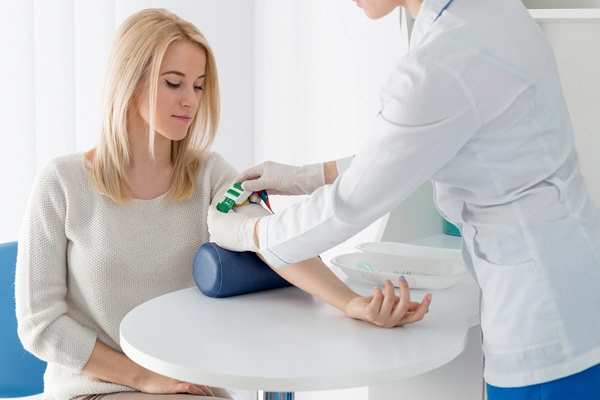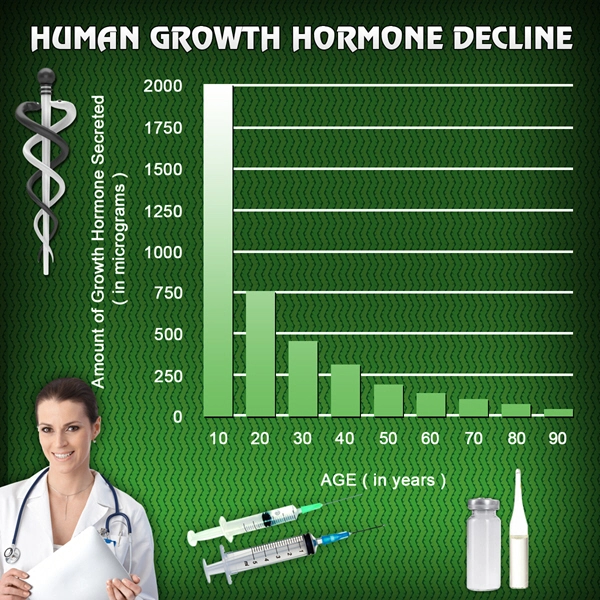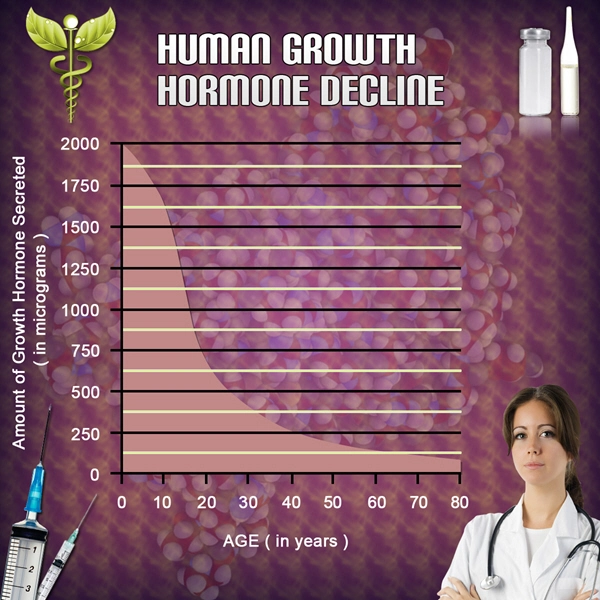Introduction to Subclinical Endocrinopathies
Subclinical endocrinopathies represent a nuanced challenge in the field of endocrinology, particularly among American men. These conditions, which include subclinical hypothyroidism and hyperthyroidism, as well as subclinical adrenal insufficiency, often go undetected due to their asymptomatic nature. Yet, their impact on overall health and well-being can be profound, necessitating a deeper understanding of diagnostic thresholds and treatment indications.
Diagnostic Thresholds for Subclinical Thyroid Disorders
Subclinical hypothyroidism, characterized by elevated thyroid-stimulating hormone (TSH) levels with normal thyroxine (T4) levels, is a common finding in men. The American Thyroid Association suggests a TSH threshold of 4.5 to 10.0 mIU/L for diagnosis. However, the decision to treat is not straightforward and depends on factors such as age, symptoms, and the presence of thyroid antibodies. Conversely, subclinical hyperthyroidism, marked by low TSH levels with normal thyroid hormone levels, is less common but equally significant. A TSH level below 0.1 mIU/L often prompts further investigation and potential treatment, especially in older men who are at higher risk for atrial fibrillation and osteoporosis.
Diagnostic Thresholds for Subclinical Adrenal Insufficiency
Subclinical adrenal insufficiency, often a result of long-term corticosteroid use or autoimmune conditions, can be challenging to diagnose. The standard diagnostic tool is the adrenocorticotropic hormone (ACTH) stimulation test, where a cortisol level below 18 µg/dL one hour post-ACTH administration suggests insufficiency. However, the decision to treat is nuanced, often based on clinical symptoms and the potential for adrenal crisis.
Treatment Indications for Subclinical Thyroid Disorders
The treatment of subclinical hypothyroidism in men is controversial. Current guidelines suggest that treatment may be warranted if TSH levels exceed 10.0 mIU/L, or if TSH is between 4.5 and 10.0 mIU/L with positive thyroid peroxidase antibodies or symptoms suggestive of hypothyroidism. Levothyroxine is the treatment of choice, with the goal of normalizing TSH levels. For subclinical hyperthyroidism, treatment is generally recommended if TSH is persistently below 0.1 mIU/L, especially in older men or those with cardiovascular risk factors. Antithyroid drugs or radioactive iodine may be considered, depending on the underlying cause.
Treatment Indications for Subclinical Adrenal Insufficiency
The management of subclinical adrenal insufficiency involves a careful balance between preventing adrenal crisis and avoiding overtreatment. In men with confirmed subclinical insufficiency, low-dose hydrocortisone may be prescribed, particularly during periods of stress or illness. Patient education on recognizing signs of adrenal crisis and the importance of wearing a medical alert bracelet is crucial.
Impact on Men's Health
Subclinical endocrinopathies can have subtle yet significant effects on men's health. Subclinical hypothyroidism may contribute to cardiovascular disease, while subclinical hyperthyroidism increases the risk of atrial fibrillation and bone loss. Subclinical adrenal insufficiency can lead to fatigue, weakness, and decreased quality of life. Early detection and appropriate management can mitigate these risks, improving overall health outcomes.
Challenges in Diagnosis and Management
The diagnosis and management of subclinical endocrinopathies in men are fraught with challenges. The lack of overt symptoms often leads to underdiagnosis, while the potential for overtreatment poses risks of its own. Moreover, the variability in diagnostic thresholds and treatment guidelines can lead to confusion among healthcare providers. Collaborative efforts between endocrinologists, primary care physicians, and patients are essential to navigate these complexities effectively.
Conclusion
Subclinical endocrinopathies in American men represent a silent yet significant health concern. Understanding the diagnostic thresholds and treatment indications for these conditions is crucial for early detection and management. By fostering a proactive approach to screening and treatment, healthcare providers can help mitigate the long-term health impacts of these often-overlooked disorders, ultimately enhancing the quality of life for affected men.

- Unveiling the Efficacy of Clomiphene Citrate in Treating Secondary Hypogonadism in American Men [Last Updated On: February 17th, 2025] [Originally Added On: February 17th, 2025]
- Exploring the Efficacy of hCG Monotherapy Compared to Exogenous Testosterone in Young Men with Hypogonadotropic Hypogonadism: A Focus on Testicular Function [Last Updated On: March 3rd, 2025] [Originally Added On: March 3rd, 2025]
- Impact of Insulin Resistance on Male Hormonal Health: Strategies for Optimal Testosterone Levels [Last Updated On: March 7th, 2025] [Originally Added On: March 7th, 2025]
- Optimizing Vitamin D for Androgen Balance in Hormone Replacement Therapy: Clinical Considerations [Last Updated On: March 8th, 2025] [Originally Added On: March 8th, 2025]
- Optimizing Men's Health: Understanding Allostatic Load and Hormonal Balance for Personalized Therapies [Last Updated On: March 9th, 2025] [Originally Added On: March 9th, 2025]
- Multimodal Endocrine Evaluation for Fatigue in American Men: Beyond Testosterone [Last Updated On: March 11th, 2025] [Originally Added On: March 11th, 2025]
- Exploring Neurosteroid Modulation: A Breakthrough in Managing Stress-Related Endocrine Dysfunction in American Men [Last Updated On: March 12th, 2025] [Originally Added On: March 12th, 2025]
- Exploring the Therapeutic Potential of Selective Androgen Receptor Modulators in Male Endocrine Health [Last Updated On: March 13th, 2025] [Originally Added On: March 13th, 2025]
- Exploring the Role of Oxytocin in Male Endocrinology: From Physiology to Therapeutic Potential [Last Updated On: March 15th, 2025] [Originally Added On: March 15th, 2025]
- Precision Medicine in HRT: Genomic and Metabolomic Advances for American Men's Health [Last Updated On: March 16th, 2025] [Originally Added On: March 16th, 2025]
- Gut Microbiome's Role in Men's Steroid Hormone Metabolism: Emerging Insights and Challenges [Last Updated On: March 17th, 2025] [Originally Added On: March 17th, 2025]
- Thyroid-Testicular Axis: Impact on Male Health and Fertility [Last Updated On: March 18th, 2025] [Originally Added On: March 18th, 2025]
- EDCs' Impact on Male Health: Hormone Therapy and Detoxification Strategies [Last Updated On: March 18th, 2025] [Originally Added On: March 18th, 2025]
- Adipokines: Key Regulators of Male Endocrine, Metabolic, and Cardiovascular Health [Last Updated On: March 18th, 2025] [Originally Added On: March 18th, 2025]
- Ghrelin System Modulation: A New Frontier in Weight Management for Hypogonadal Men on TRT [Last Updated On: March 18th, 2025] [Originally Added On: March 18th, 2025]
- Somatostatin Analogues: Expanding Roles in Male Endocrinology and Health Management [Last Updated On: March 18th, 2025] [Originally Added On: March 18th, 2025]
- Chronobiology's Role in Optimizing Male Hormone Testing and Therapy Timing [Last Updated On: March 18th, 2025] [Originally Added On: March 18th, 2025]
- Mitochondrial Function and Male Hormonal Health: Age-Related Decline and Therapeutic Strategies [Last Updated On: March 19th, 2025] [Originally Added On: March 19th, 2025]
- Inflammaging and Endocrine Senescence: Optimizing Hormonal Health in American Males [Last Updated On: March 21st, 2025] [Originally Added On: March 21st, 2025]
- Trace Elements' Role in Hormone Metabolism for American Men's Health [Last Updated On: March 21st, 2025] [Originally Added On: March 21st, 2025]
- Metabolomics Revolutionizes Male Endocrine Diagnostics in American Males [Last Updated On: March 21st, 2025] [Originally Added On: March 21st, 2025]
- Pharmacogenomics Revolutionizes Hormone Replacement Therapy for Men: Tailoring Treatment to Genetic Profiles [Last Updated On: March 22nd, 2025] [Originally Added On: March 22nd, 2025]
- Exercise and Hormonal Dynamics in Men: Implications for Hormone Replacement Therapy [Last Updated On: March 22nd, 2025] [Originally Added On: March 22nd, 2025]
- Managing Male Climacteric Syndrome: Symptoms, Diagnosis, and Personalized Treatment Approaches [Last Updated On: March 22nd, 2025] [Originally Added On: March 22nd, 2025]
- Neuroendocrine Integration of Energy Balance and Reproduction in American Men: Clinical Insights [Last Updated On: March 23rd, 2025] [Originally Added On: March 23rd, 2025]
- Multimarker Cardiometabolic Risk Assessment for American Males on Hormone Replacement Therapy [Last Updated On: March 23rd, 2025] [Originally Added On: March 23rd, 2025]
- Free and Bioavailable Hormones: Key to Male Endocrinology for American Men [Last Updated On: March 24th, 2025] [Originally Added On: March 24th, 2025]
- Managing Prostate Health Safely During Testosterone Replacement Therapy: A Guide for American Men [Last Updated On: March 24th, 2025] [Originally Added On: March 24th, 2025]
- Pituitary Incidentalomas in Men: Evaluation, Management, and Long-Term Monitoring [Last Updated On: March 24th, 2025] [Originally Added On: March 24th, 2025]
- HRT and Telomere Length: Impacts on Aging and Longevity in American Males [Last Updated On: March 24th, 2025] [Originally Added On: March 24th, 2025]
- Male Biological Clock: Endocrine Impacts on Fertility and Offspring Health in Aging American Men [Last Updated On: March 24th, 2025] [Originally Added On: March 24th, 2025]
- Endocrine Frailty in Aging American Men: Understanding and Multimodal Intervention Strategies [Last Updated On: March 25th, 2025] [Originally Added On: March 25th, 2025]
- NAFLD and Male Endocrine Health: A Bidirectional Impact and Management Strategies [Last Updated On: March 25th, 2025] [Originally Added On: March 25th, 2025]
- Opioid-Induced Endocrinopathy in American Men: Mechanisms, Symptoms, and Management [Last Updated On: March 25th, 2025] [Originally Added On: March 25th, 2025]
- Diurnal Hormone Variations: Impact on Men's Endocrinology and Therapy Optimization [Last Updated On: March 25th, 2025] [Originally Added On: March 25th, 2025]
- Endocrine Reserve Testing in Men: Applications, Limitations, and Future Directions [Last Updated On: March 25th, 2025] [Originally Added On: March 25th, 2025]
- BMD Monitoring Protocols for Men on Hormone Replacement Therapy: Endocrinological Insights [Last Updated On: March 25th, 2025] [Originally Added On: March 25th, 2025]
- OSA's Endocrine Effects in Men: Beyond Testosterone to HPA, Thyroid, GH, RAAS [Last Updated On: March 25th, 2025] [Originally Added On: March 25th, 2025]
- Hormone Optimization: Preventing Sarcopenia in Aging American Males [Last Updated On: March 25th, 2025] [Originally Added On: March 25th, 2025]
- Longitudinal Epigenetic Changes from HRT in American Men: Endocrinological Insights [Last Updated On: March 26th, 2025] [Originally Added On: March 26th, 2025]
- SHBG: Beyond Transport - Its Role in Male Hormonal and Metabolic Health [Last Updated On: March 26th, 2025] [Originally Added On: March 26th, 2025]
- Managing Polycythemia in Men on Testosterone Therapy: Evidence-Based Strategies [Last Updated On: March 26th, 2025] [Originally Added On: March 26th, 2025]
- Biomarkers in Male Endocrinology: Growth Factors and Cytokines in Diagnosis and Treatment [Last Updated On: March 26th, 2025] [Originally Added On: March 26th, 2025]
- Testosterone's Immunomodulatory Effects on Autoimmune Diseases in American Men [Last Updated On: March 26th, 2025] [Originally Added On: March 26th, 2025]
- HPT Axis Recovery After Exogenous Testosterone: A Comprehensive Guide for American Men [Last Updated On: March 27th, 2025] [Originally Added On: March 27th, 2025]
- Neuropeptide Y: Key Regulator in Male Endocrine and Metabolic Health [Last Updated On: March 27th, 2025] [Originally Added On: March 27th, 2025]
- Hormone Replacement Therapy Enhances Cognitive Function in Aging Men: A Comprehensive Review [Last Updated On: March 27th, 2025] [Originally Added On: March 27th, 2025]
- Genetic Insights and Personalized Treatments for Male Hypogonadism [Last Updated On: March 27th, 2025] [Originally Added On: March 27th, 2025]
- Luteinizing Hormone: Key Roles in Men's Health and Endocrinology [Last Updated On: March 27th, 2025] [Originally Added On: March 27th, 2025]
- Leptin Resistance in American Men: Endocrine Impacts and Targeted Interventions [Last Updated On: March 27th, 2025] [Originally Added On: March 27th, 2025]
- ECS Influence on Male Reproductive Health: Insights for American Males [Last Updated On: March 27th, 2025] [Originally Added On: March 27th, 2025]
- Innovative Androgen Receptor Techniques Revolutionize Men's Hormone Therapy in the US [Last Updated On: March 27th, 2025] [Originally Added On: March 27th, 2025]
- INSL3: A Stable Biomarker for Assessing Leydig Cell Function in Men [Last Updated On: March 27th, 2025] [Originally Added On: March 27th, 2025]
- Post-Traumatic Hypopituitarism in American Men: Diagnosis, Treatment, and Support [Last Updated On: March 28th, 2025] [Originally Added On: March 28th, 2025]
- Vasopressin's Role in Male Endocrinology: Therapeutic Potential and Clinical Applications [Last Updated On: March 28th, 2025] [Originally Added On: March 28th, 2025]
- AMH's Expanding Role in Adult Male Endocrinology: From Fertility to Cardiovascular Health [Last Updated On: March 29th, 2025] [Originally Added On: March 29th, 2025]
- Inhibin B: Key Biomarker for Male Fertility and Testicular Health Assessment [Last Updated On: March 30th, 2025] [Originally Added On: March 30th, 2025]
- Long-term Endocrine Effects of Traumatic Brain Injury in Men: Management and Follow-up [Last Updated On: March 30th, 2025] [Originally Added On: March 30th, 2025]
- Chemotherapy-Induced Endocrine Disruption in Men: Monitoring and Intervention Strategies [Last Updated On: March 30th, 2025] [Originally Added On: March 30th, 2025]
- Hyperparathyroidism's Impact on Male Reproductive Health: Diagnosis and Management Strategies [Last Updated On: April 1st, 2025] [Originally Added On: April 1st, 2025]
- Radiation-Induced Hypopituitarism in Men: Hormonal Deficiencies and Replacement Therapies [Last Updated On: April 1st, 2025] [Originally Added On: April 1st, 2025]
- Chronic Kidney Disease: Impacts and Management of Male Endocrine Function [Last Updated On: April 3rd, 2025] [Originally Added On: April 3rd, 2025]
- Hemochromatosis in Men: Endocrine Effects, Screening, and Management Strategies [Last Updated On: April 5th, 2025] [Originally Added On: April 5th, 2025]
- Cushing's Syndrome in Men: Clinical Features, Diagnosis, and Hormone Therapy Management [Last Updated On: April 5th, 2025] [Originally Added On: April 5th, 2025]
- Endocrine Insights into Male Sexual Desire Disorders: Diagnosis and Treatment Options [Last Updated On: April 6th, 2025] [Originally Added On: April 6th, 2025]
- Adrenal Incidentalomas in Men: Endocrine Evaluation and Management Algorithm [Last Updated On: April 6th, 2025] [Originally Added On: April 6th, 2025]
- Hormonal Factors and Treatment Strategies for Male Stress Urinary Incontinence [Last Updated On: April 7th, 2025] [Originally Added On: April 7th, 2025]
- Optimizing GH and IGF-1 in Male Athletes: Performance, Health, and Ethics [Last Updated On: April 8th, 2025] [Originally Added On: April 8th, 2025]
- Osteoporosis in Men: Diagnosis, Endocrine Evaluation, and Multifaceted Management Strategies [Last Updated On: April 9th, 2025] [Originally Added On: April 9th, 2025]
- Enhancing Endocrine Resilience in American Men: Biological Mediators and Lifestyle Strategies [Last Updated On: April 10th, 2025] [Originally Added On: April 10th, 2025]
- Endocrine Management of Hormone Therapy in Transgender Men: Protocols and Health Outcomes [Last Updated On: April 10th, 2025] [Originally Added On: April 10th, 2025]
- Male Hormonal Contraception: Endocrine Mechanisms and Clinical Progress in American Males [Last Updated On: April 11th, 2025] [Originally Added On: April 11th, 2025]
- HRT in Male Fertility: Current Practices and Future Innovations for American Men [Last Updated On: April 12th, 2025] [Originally Added On: April 12th, 2025]
- AI Revolutionizes Precision Endocrinology for Personalized Men's Hormone Therapy [Last Updated On: April 12th, 2025] [Originally Added On: April 12th, 2025]
- Androgen Action: Molecular Biology and Targeted Endocrine Therapies in Men [Last Updated On: April 14th, 2025] [Originally Added On: April 14th, 2025]
- Validating and Implementing PROMs in Male Endocrinology for American Men [Last Updated On: April 15th, 2025] [Originally Added On: April 15th, 2025]
- CGM's Role in Managing Endocrine Disorders in American Men: Beyond Diabetes [Last Updated On: April 16th, 2025] [Originally Added On: April 16th, 2025]
- Integrative Endocrinology: Holistic Hormone Management for Men's Health [Last Updated On: April 17th, 2025] [Originally Added On: April 17th, 2025]
- Wearable Tech Revolutionizes Hormone Monitoring for Men's Health [Last Updated On: April 17th, 2025] [Originally Added On: April 17th, 2025]
- Telehealth in Male Endocrinology: Enhancing HRT Access and Effectiveness [Last Updated On: April 17th, 2025] [Originally Added On: April 17th, 2025]



List of USA state clinics - click a flag below for blood testing clinics.
Word Count: 583



















































